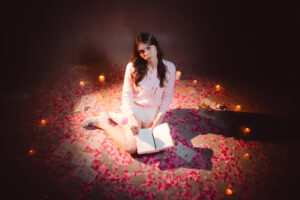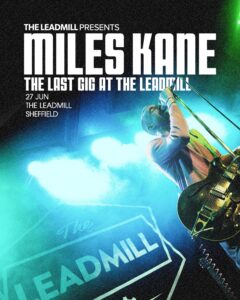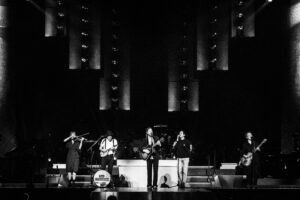‘EVIL, HATE FILLED FEMALE’: HOW DELILAH BON TURNED A HATE COMMENT INTO A BRAND NEW BRAT PUNK ALBUM
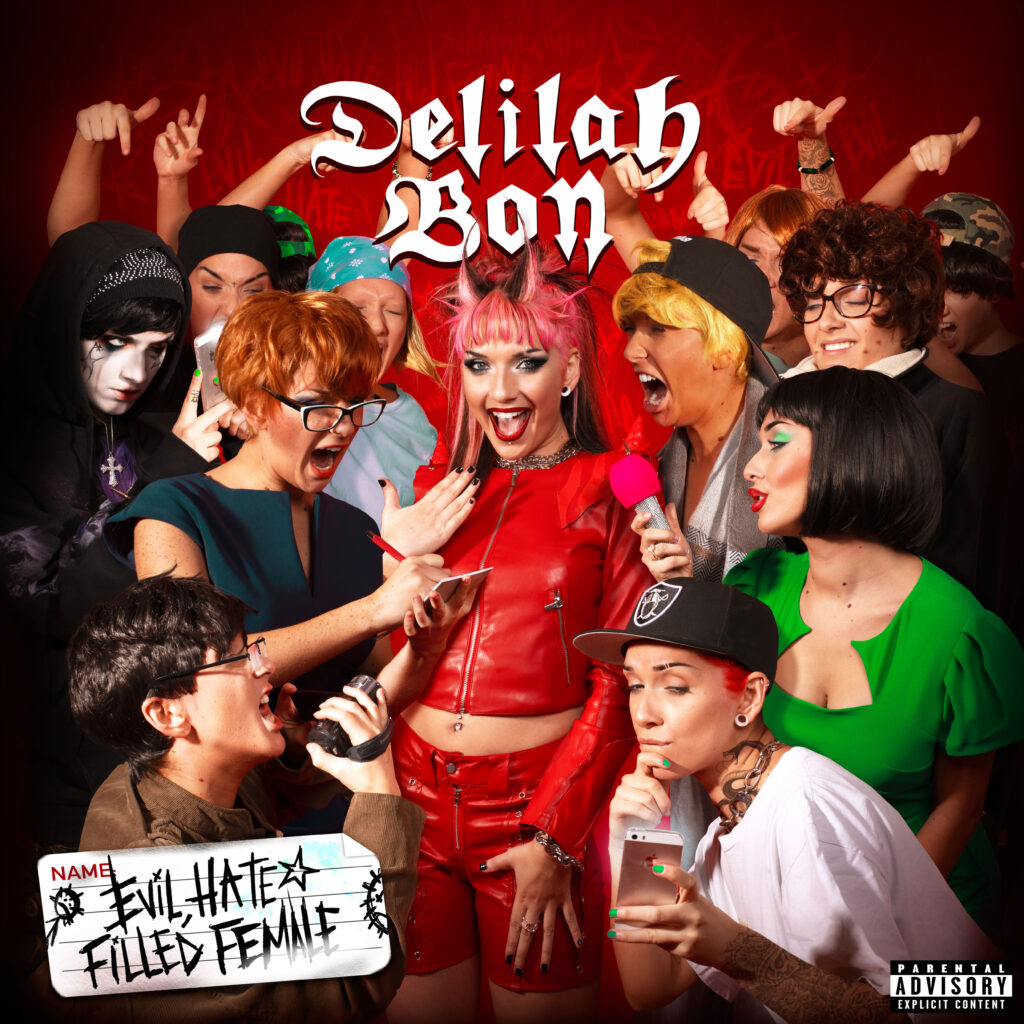
ALBUM REVIEW | DELILAH BON – EVIL, HATE FILLED FEMALE’ (OUT 13/09/24) by Martha Munro | 3.5/5
‘Brat summer’ is officially over, and, with the release of her second album ‘Evil, Hate Filled Female’, trailblazing independent brat-punk star Delilah Bon has declared 9th September the beginning of riot-grrrl autumn. This year has delivered nothing but success for Bon, with her support slot on French band Shaka Ponk’s tour as well as appearances at numerous festivals, such as Glastonbury, Download and 2000 Trees, this summer. And it’s all been leading up to this highly-anticipated album release, a swirling musical mixture of rage and humour, hip-hop and nu-metal, uplift and disdain. But, despite the abundant energy, piercingly relevant themes and eclectic influences, there’s something still to be desired once the fourteenth track finishes and the headphones come off.
The album kicks off with the shunting beat and haunted-house-esque organs of Hey World, a track heavily influenced by hip-hop and grunge icons alike. Aptly, this song is a gritty, no-nonsense, honest introduction to the artist and this body of work, with her rapping through the verses with N.W.A.-style vocals but taking on a Courtney-Love-esque screaming quality towards the end of the track. This song’s theme of unapologetic existence continues into the following track Maverick, a powerful single that wastes no time getting into the full scope of its thrashing sound. The amped-up bass powers the track, leaving just enough room for the complementary drum patterns and their rippling, running cymbal motifs. Embracing the classic riot-grrrl grunge sound, Delilah Bon muses on the importance of reclaiming self-confidence in spaces you might not necessarily feel welcome in, increasing the speed and urgency of her rapping and artfully shifting her vocal qualities throughout the song; in just a few short minutes, we hear classic rap, whispering, screaming, sassy spoken quips and sultry smooth pre-choruses. It’s clear that Bon is no stranger to adversity – her transgressions are integral to her being.
Next up is the villain-era-defining single and title-track Evil, Hate Filled Female in all its synthesised, searing glory. The track was inspired by a hate comment written about Delilah Bon by a bigoted man and begins in an ominous minor key, creating an intro that sounds like a dark prophecy being told. Electronic elements and vocal layers are added in turn to build suspense, heightening the full impact of the moment where the intensity really kicks in. Bon’s expert balance of humour and anger here is paramount, using found sounds like gunshots and artificial radio excerpts talking about the artist as a femcel and including the intro as a motif in the chorus, elevating the section with a strong drum beat and a chorus of backing vocals which are made to sound intentionally and ironically childish. The focus on fighting homophobia is key in this track too; Delilah Bon has consistently used her music to amplify the voices of marginalised communities, namely women and the LGBTQ+ community, and this song is a true anthem of resistance. Through Bon’s clever depiction of homophobic men as pathetic, immature and emotionally unaware of themselves, she belittles their harmful comments and turns them into a musical movement of protest and self-confidence.
Fourth track The Internet – also a single – speaks on the endlessly harmful impact of social media on young people, particularly concerning incel culture and the typically male vilification of women and members of the LGBTQ+ community. In a satirical, sassy introduction, Delilah Bon herself imitates a stereotypical, bigoted male influencer, perfectly introducing the song’s themes while still showing her own personality and adding playfulness to serious topics. There are lyrics advocating for queer people, drag queens and the transgender community as well as some from the perspective of an unreliable narrator: the internet itself. And despite the song’s familiarly raucous style, the singer takes on a vocal quality similar to that of Florence Welch during the bridge, and the ethereal smoothness placed here pointedly (and hilariously) contrasts with the mocking sounds of a man watching pornography in the background. This – Bon’s making fun of men through imitation – is also featured prominently in the album artwork, altogether creating a cohesive work and message: Delilah Bon won’t take men’s sh*t and you shouldn’t either.
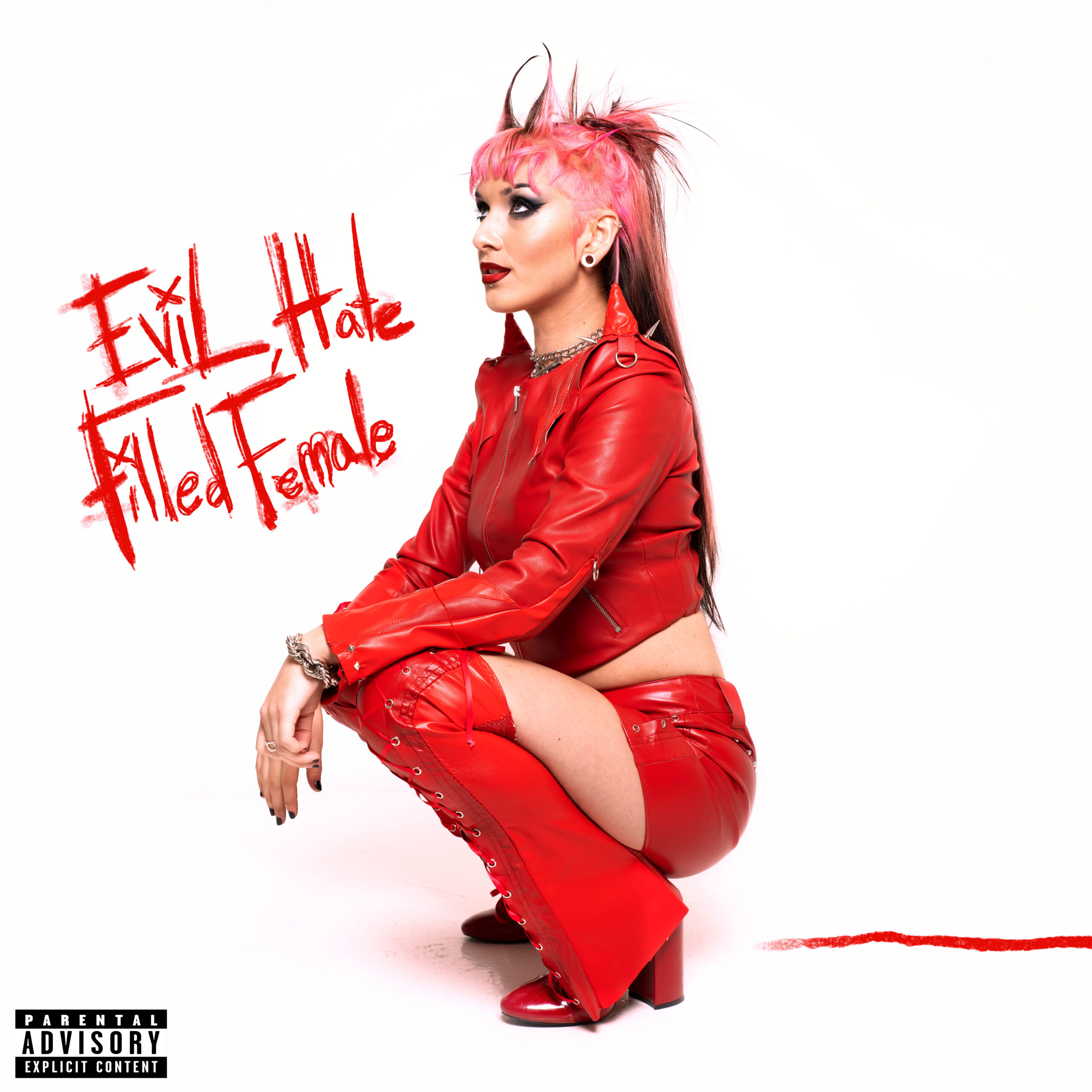
The next track Finally See Me, with its sliding, whining, waning electric guitar, is one about the normalisation of bullying in schools and the lack of change through generations, making teenagers like young Delilah Bon feel the need to hide their struggles and spark. We hear the buzzing sound of a fly as the song begins which makes another appearance as it comes to a close, to which Bon responds with the softly-spoken command, ‘Don’t kill it’, a condensed, metaphoric way of saying ‘Don’t get rid of a part of yourself just because you believe it to be a bother.’ The artist’s celebration of unbridled self-confidence is brought once more into the following raunchy, ruthless, take-it-with-a-pinch-of-salt track I Am The Best (Just Ask Your Momma). This number is fast-paced and high in energy, with high electronic sounds to pair with the relatively low, minor-key piano melody, joined in the chorus by fun percussive patterns. But it has to be said that, while every single song on this album is filled to the brim with personality and passion, it does get incredibly repetitive. It’s true that within each track, Bon docks at many musical harbours, reminding the listener of artists from the most polarised of genres. But she uses the same tools to do so every time, and, as a result, the album as a whole becomes boring. This is such a huge shame; Delilah Bon has talent, creativity and passion oozing out of every bar, not to mention the societal resistance and protest to patriarchy that is so core to her professional and personal self. But if a listener keeps hearing the same things, the same formulas, over and over in this one album, they are likely to miss the message.
However, there are still some definite highlights as we move through Evil, Hate Filled Female, one of which being the short and definitely not sweet seventh track Villain, sax-filled and scream-flooded. The static quality inserted episodically throughout this song makes it intentionally unharmonious, a statement of the artist’s pride in her transgressions. Similarly, Bon highlights the importance of supporting women’s wildness and resistance against patriarchal norms in the next track My Girlz. The marching-band-style horns used throughout this song epitomise this sense of community and strength in numbers. However, the keys used to frame the vocal melody and the musical composition beneath do not match at all; unlike Villain, in which the lack of cohesion fits the song and its sound, parts of My Girlz sound odd and not-quite fitting. As well as this, we hear here more than ever the lack of experimentation with verses. While the choruses on Evil, Hate Filled Female are almost always overflowing with personality and changes, the verses stay within the same box pretty much the whole of the way through, taking away from their all-important and well-worded messages.
Following this are two more tracks, Grown Ass Men and Freak Alert, that criticise the normalised, harmful and – as revealed by Delilah Bon – embarrassing behaviours of men. The strong, lilting drum patterns used to power Grown Ass Men create solid ground on which Bon’s insightful lyrics can stand tall and telling. The bridge signals a surprising stylistic shift to a Beyonce-esque pop, broadening the artist’s sound and providing another voice in which to prove that men ‘listen with their eyes’ and that Delilah Bon can see right through them. Freak Alert then kicks off with its sultry, syncopated vocal motif and smashing drums: a smashing track as a whole. In verses that are more reduced than this tantalising hook, Bon shows off a knack for storytelling by rapping about instances of sexual harassment in which the victim, is labelled the ‘freak’. But as usual, she doesn’t allow this label to be stuck on her by an oppressor without retaliation. Instead, she rewrites these stories by ending them with her chopping off these men’s penises, leaving the last one to bleed out in a supermarket in a cinematic ending, comprised of the scene she just described in the song’s final section; you can hear her walking out without another word, leaving the man whimpering on the floor and the tinkling of the door’s bell in her wake. Once again, in Epstein, Delilah Bon exposes yet another strand of the ever-tangling knot of patriarchy: pedophilia, molestation and the fetishisation of young girls. As well as her characteristic nu-metal, the singer takes on a more poppy quality here, reminding the listener of Girls Aloud in the choruses specifically, illustrating just how much Bon believes in speaking for silenced women in these oppressive situations and banding together to do so.
Volatile is up next, another single. This time, Delilah Bon tells us about her journey in the music industry: what it’s like as a teenage, female musician, how easy it is to lapse into self doubt, how to remind yourself of your creative power rather than internalise messages from elsewhere. But, despite the fact that this track was chosen as a single and released in early August, it doesn’t seem to stand out in any way. Unfortunately, Bon’s highly important takeaways are lost on the listener on tracks that aren’t quite characteristic enough in style to stick and Volatile is a prime example.
The immediate energy shift in the penultimate track Drop Dead Delilah, on the other hand, is a powerful song declaring self-reclamation, once again using electronically generated organs and horns to create that horror-film-soundtrack feel. In the introduction, Bon addresses a young-sounding audience in a call-and-response section, reminding the younger generations of listeners that she wants to speak and be a role model for them. The song ends with the isolated voice of a child saying ‘Drop dead, Delilah’; this song is yet another example of Bon reimagining insults towards her as forms of transgression and resistance to adversity: a symbol of strength.
And the satirical closing track Committed A Crime just encompasses everything that Delilah Bon is and has been. She sets the song up like a courtroom, in which she is on trial and uses her own voice to imitate the disapproving comments from onlookers, witnesses and the judge alike. Lyrics like ‘She’ll be turning you vegan / Turning you feminist’ invite the listener to both laugh and learn, to take this musical-esque piece as a humorous send off and expression of Bon’s breaking of the mould, of her anger, resilience and promise of more to come.
So, while the compositional elements of Evil, Hate Filled Female are, for the most part, very similar, this is without a doubt Delilah Bon’s most authentic album yet. The lack of conformity to the male gaze, music industry standards or expectations of genre just shows that this queen of queer resistance and female rage has much more to give.
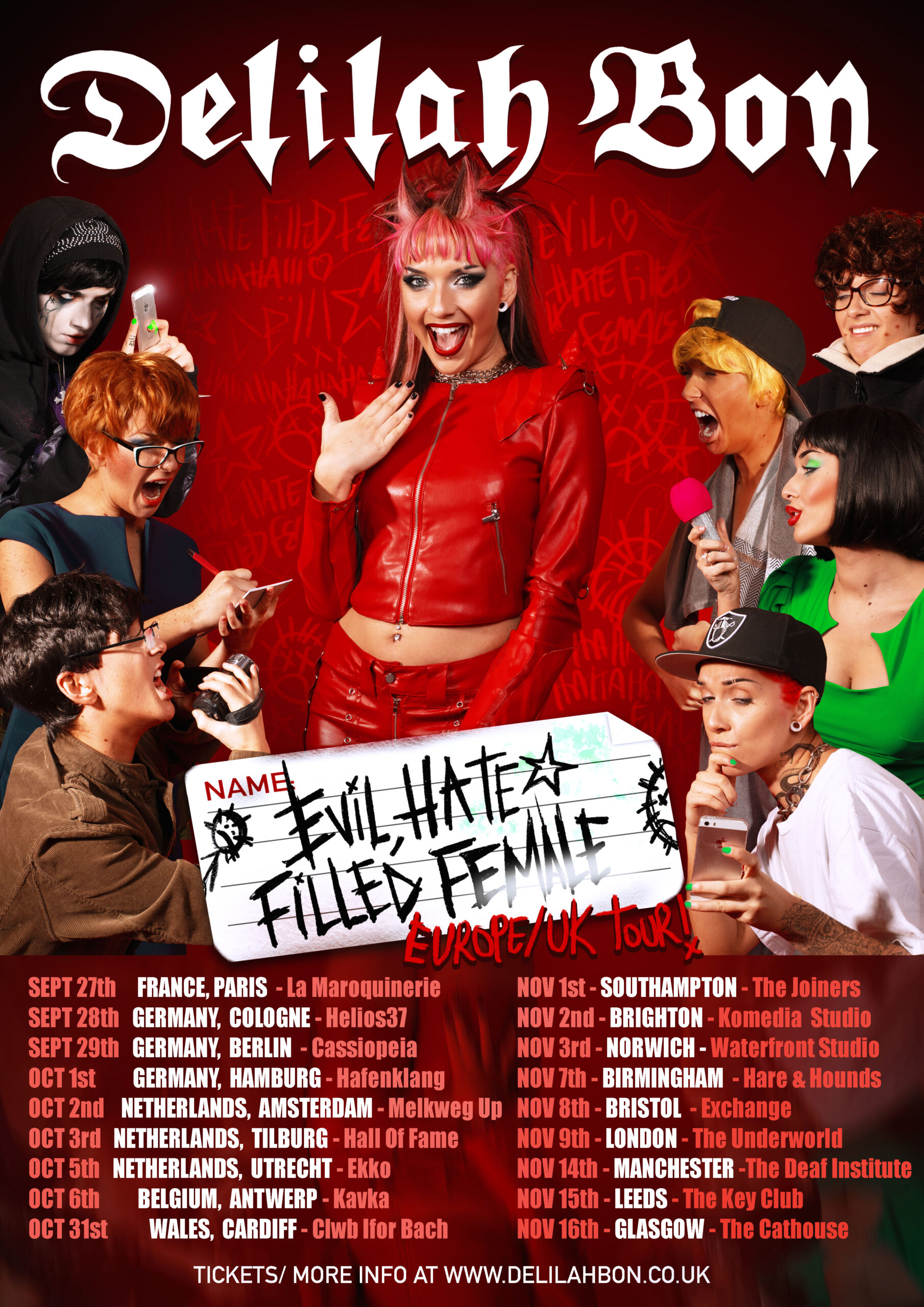
Delilah Bon’s upcoming UK and European tour dates:
OCTOBER
Thu 31 CARDIFF Clwb Ifor Bach
NOVEMBER
Fri 01 SOUTHAMPTON Joiners
Sat 02 BRIGHTON Komedia Studio
Sun 03 NORWICH Waterfront Studio
Thu 07 BIRMINGHAM Hare & Hounds
Fri 08 BRISTOL Exchange
Sat 09 LONDON Underworld
Thu 14 MANCHESTER Deaf Institute
Fri 15 LEEDS Key Club
Sat 16 GLASGOW G2 (venue change)

